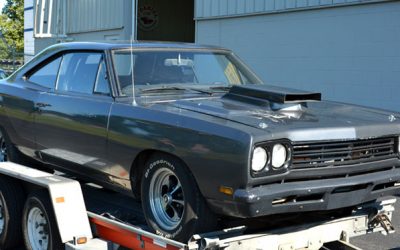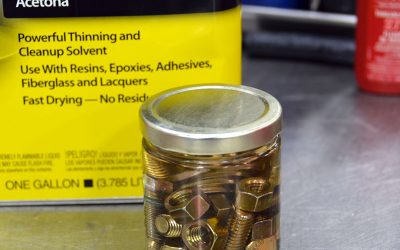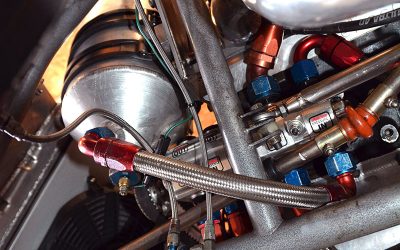From tear-your-head off acceleration thrills to nerdy info technology?
 Maybe 15 years ago, my wife and I along with two other couples were invited to a nice weekend dinner party at her cousin’s house. After the general greetings died down, the women shooed us men out of the kitchen so they could fix food and drink wine without our annoying presence. We adjourned to the host’s home office to take a look at his new computer, and we ended up standing around with our drinks discussing the hardware and software we used, crazy problems with our desktops and laptops, and their solutions. Suddenly, a shocking thought occurred to me, and I blurted out, “Wait a minute. Twenty years ago, a bunch of men standing around like this would have been talking about cars!â€
Maybe 15 years ago, my wife and I along with two other couples were invited to a nice weekend dinner party at her cousin’s house. After the general greetings died down, the women shooed us men out of the kitchen so they could fix food and drink wine without our annoying presence. We adjourned to the host’s home office to take a look at his new computer, and we ended up standing around with our drinks discussing the hardware and software we used, crazy problems with our desktops and laptops, and their solutions. Suddenly, a shocking thought occurred to me, and I blurted out, “Wait a minute. Twenty years ago, a bunch of men standing around like this would have been talking about cars!â€
Had I discovered a disturbing trend? Yeah, I’m afraid so, and it doesn’t just apply to middle-aged men, but even more so to kids. Take a look at Greg’s “Wandering Fulminations on High-Performance†in this issue of Performance Technician for a discussion of where we might be going.
Most guys of my generation struggled mightily to keep old cars running, and had fantasies of how we could modify our vehicles into something really cool and fun — if we had the time and money. Well, some of us had free time in those days, but not many had extra money. So, when we managed to swap an engine, install a hotter cam or a bigger intake and headers, it was a big deal, and the results (when not disasters from lack of knowledge) were immensely satisfying.
As I wrote in a previous column, electric racing cars are capable of fabulous acceleration, but they will take the romance out of high performance. Who wants to hear the whirr of a D.C. motor instead of the lumpy idle and thundering exhaust of internal combustion? No smells except for a little ozone, either. Appliances. “To those of us who thrive on the sounds and smells of hot rodding, this just seems all wrong…,†I said then.
When I was young, the main thing that differentiated a skill-challenged peon from an “A†mechanic was the ability to build or repair an internal-combustion engine. I took pride in learning that, and all the scientific subtleties of combustion, metallurgy, and fine measurement that went with it. This trend changes everything.
There is one factor that makes me think there’ll be some continuity, at least: I have two grandsons, ages two and three. Both little guys, with whom I try to spend as much time as possible, are car nuts. They have dozens and dozens of toy cars, love the characters in the Disney movie “Cars,†and make engine sounds pretty well. The older one likes me to tell him about the various cars I’ve owned (41 at last count), and makes a sincere effort to repeat the make and model names.
Will I have the pleasure of teaching them to drive, and perhaps the rudiments of traditional automotive technology? If I live long enough, I hope so. I may be wrong, but I can’t see self-driving electric cars completely taking over our vehicular population in, say, 13 years, but I’ve prognosticated before about sweeping changes in cars and been many years, sometimes decades, off. Regardless, if I get to introduce them to mechanical skills, they’ll at least be transferable to other areas — HVAC, manufacturing, plumbing, etc. — and the electrical understanding a tech has to have should go on and on. High-performance, however, may be redefined as the quest for the most fuel efficiency and the lowest emissions. n





0 Comments